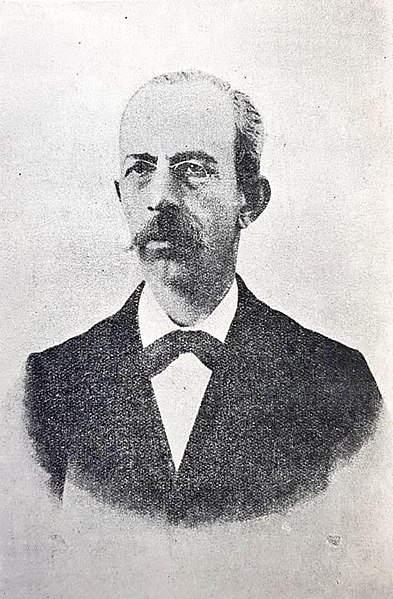Michel Aflaq was a Syrian philosopher, sociologist and Arab nationalist. His ideas played a significant role in the development of Ba'athism and its political movement; he is considered by several Ba'athists to be the principal founder of Ba'athist thought. He published various books during his lifetime, such as "The Road to Renaissance" (1940), The Battle for One Destiny (1958) and The Struggle Against Distorting the Movement of Arab Revolution (1975).
Michel Aflaq in 1963
Aflaq as seen in the late 1930s
Aflaq (front row, first from right) with the leaders of the 14 July 1958 revolution in Iraq, including Khaled al-Naqshabendi (front row, left), Abd as-Salam Arif (back row, second from left), Abd al-Karim Qasim (back row, third from left), and Muhammad Najib ar-Ruba'i (back row, fifth from left)
Aflaq (right) with al-Hawrani, as seen together in 1957
Arab nationalism is a political ideology asserting that Arabs constitute a single nation. As a traditional nationalist ideology, it promotes Arab culture and civilization, celebrates Arab history, glorifies the Arabic language as well as Arabic literature, and calls for the rejuvenation of Arab society through total unification. It bases itself on the premise that the people of the Arab world — from the Atlantic Ocean to the Arabian Sea — constitute one nation bound together by a common identity: ethnicity, language, culture, history, geography, and politics.
The Aqaba Flagpole in Aqaba, Jordan bearing the flag of the Arab Revolt. The Aqaba Flagpole is the sixth tallest free standing flagpole in the world.
Ibrahim al-Yaziji (1847–1906)
Members of the Arab Higher Committee, 1936; clockwise, Jamal al-Husayni, Hussein Khalidi, Yaqub al-Ghusayn, Fuad Saba, Alfred Roke, Abdul Latif Es-Salah, Ahmed Hilmi, Amin al-Husayni, and Raghib al-Nashashibi.
Egyptian president Gamal Abdel Nasser returns to cheering crowds in Cairo after announcing the nationalization of the Suez Canal Company, August 1956.








